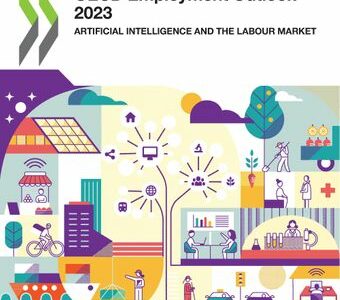The OECD programme on AI in Work, Innovation, Productivity and Skills (AI-WIPS) - with the support of Germany – analyses the impact of AI on the labour market, skills and social policy.
Skills
AI is increasingly changing the type of tasks performed in most jobs, thereby increasing the potential for automation and digitalisation. Assessing this potential effect on jobs is crucial for countries, employers and individuals to prepare for the changes ahead, particularly through regular provision of and participation in learning activities throughout working lives.
The rise of AI is also contributing to job creation in new occupations, particularly among specialised professionals in AI-related fields. These jobs require a mix of very specific knowledge along with transversal skills such as leadership, communication and teamwork skills, required for the expanding number of opportunities for ICT-enabled collaborative work.
Moreover, some technological developments can change how people learn. Technologies and tools using AI are particularly promising in this respect. AI can contribute to training along several dimensions: identifying skill gaps, raising aspirations, matching to available training, personalising content and assessment and innovative delivery.
OECD work on this topic focuses on:
- Changes in the risk of job automation as a result of progress in AI and robotics and changes in task composition
- Exploring skills needs in AI-related occupations
- The use of AI in training
Videos
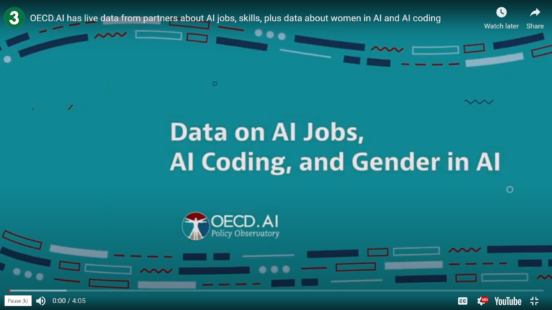
OECD.AI live data about AI jobs and skills and more
–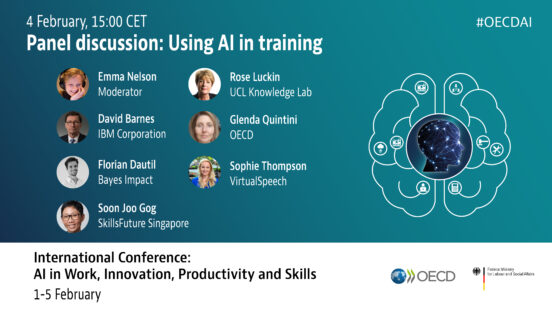
Using AI in training
–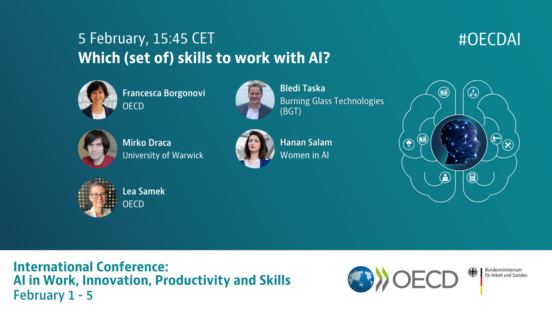
Which (set of) skills to work with AI?
–
New skills at work
–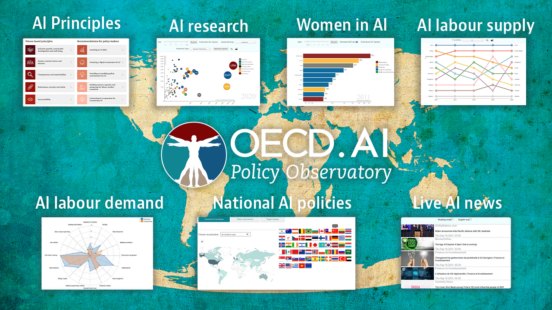
Informing AI policy: Data in education, jobs, software development and more
–
Training for AI adoption in enterprises
–
Conversation with Daron Acemoglu on AI, automation and skills
–Publications
AI and the Future of Skills, Volume 1 : Capabilities and Assessments
Artificial intelligence (AI) and robotics are major breakthrough technologies that are transforming the economy and society. The OECD’s Artificial Intelligence and the Future of Skills (AIFS) project is developing a programme to assess the capabiliti...
The human capital behind AI: Jobs and skills demand from online job postings
Building on recent OECD work, this paper analyses the skills sets (“skills bundles”) demanded in artificial intelligence (AI)-related online job postings. The analysis uses Burning Glass Technologies’ data for the United States and the United Kingdom...
Demand for AI Skills in Jobs: Evidence from online job postings
This report presents new evidence about occupations requiring artificial intelligence (AI)-related competencies, based on online job posting data and previous work on identifying and measuring developments in AI. It finds that the total number of AI-...
OECD Skills Outlook 2019 – Thriving in a Digital World
Economies and societies are undergoing digital transformations that bring both opportunities and challenges and countries’ preparedness to seize the benefits of a digital world is largely dependent on the skills of their population. This edition of t...
Developing Minds in the Digital Age : Towards a Science of Learning for 21st Century Education
This book highlights new scientific research about how people learn, including interdisciplinary perspectives from neuroscience, the social, cognitive and behavioural sciences, education, computer and information sciences, artificial intelligence/mac...


























